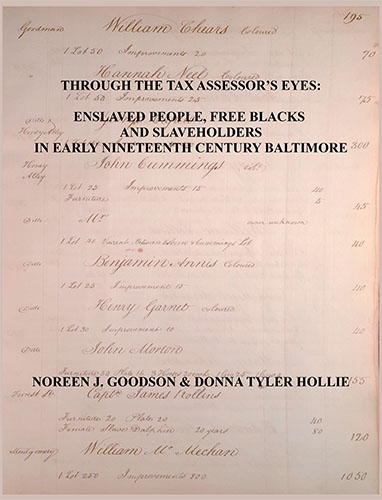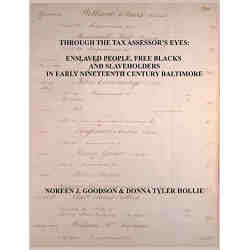On a very basic level this is a book about slavery in Baltimore Maryland in the early 19th century. However, it is much, much more than that, as former Maryland State Archivist Edward C. Papenfuse’s introduction reveals. Dr. Papenfuse’s informative essay discusses what we have come to know about the conditions of urban life in the second decade of the 19th century. His introduction summarizes the recent scholarship about urban slavery, that of Baltimore’s in particular, and where we can turn for additional information on that subject.
Goodson and Hollie’s contribution to the social and racial history and genealogy of Baltimore in the wake of the War of 1812 now joins the ranks of that scholarship. Based primarily upon the original tax assessor ledgers for 1813 and 1818 housed at the Baltimore City Archives, this work identifies all free blacks and slave owners in Baltimore by name, race, address, occupation, names/ages of slaves owned (if any), and sometimes by nationality and other particulars.
The authors have supplemented the information found in the tax ledgers with data from city directories, census records, and books and journal articles about 19th-century Baltimore and Maryland. They examined newspapers, court records and biographies of some of the more prominent residents mentioned in the assessments so as to illuminate their lives in a number of biographical sketches. Genealogists, and particularly those of African descent, will find this information invaluable for their research, as it specifies the streets their forebears lived on, the occupations they followed, and the property, both real and human, on which they paid taxes.
African-American genealogists will be able to discover whether their ancestors were free or enslaved and, if enslaved, to whom they “belonged.” Historians will be able to ferret out housing patterns, economic conditions, the role and relationships of women, the institution of slavery and the impact of the port/harbor on the economic development of Baltimore. Illustrated and possessing a complete name index, this work belongs in the collection of every African-American genealogist and historian.


